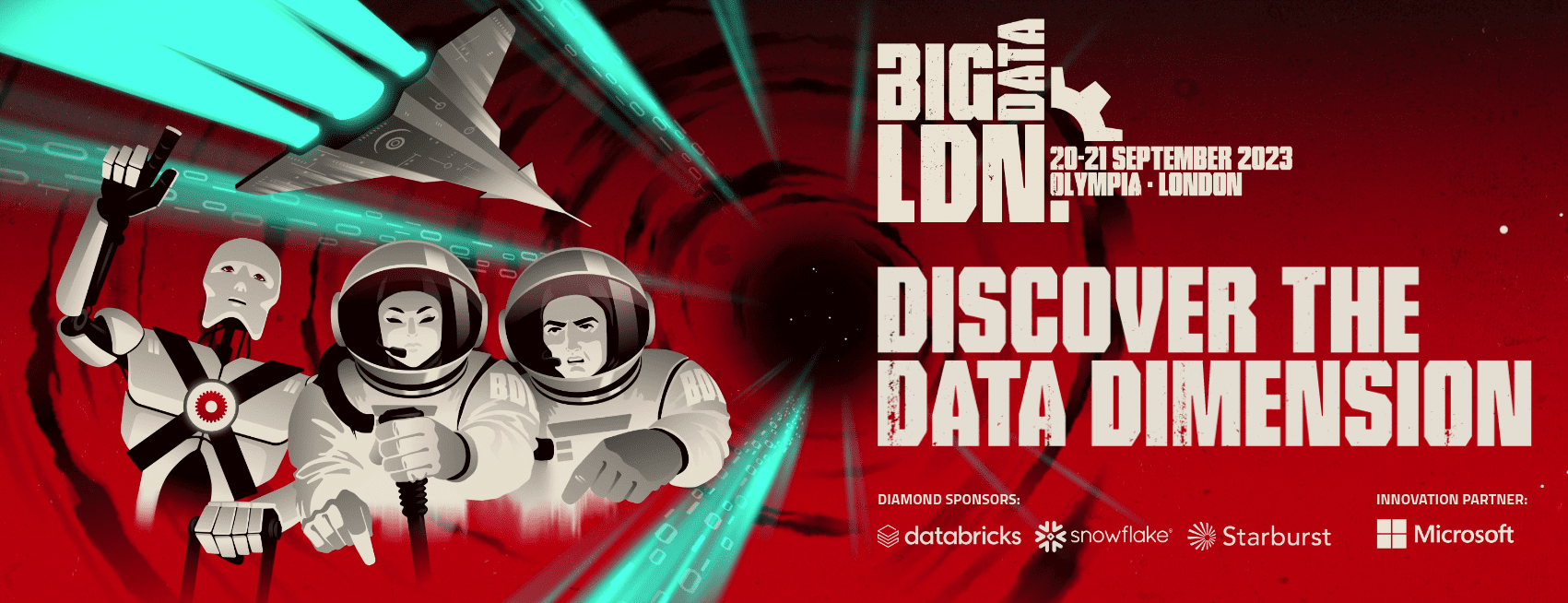Sponsored Content

By Bill Hammond, Event Director, Big Data London
Generative AI has created a shift in how we interact with and utilise data, with tools such as deep learning and natural language processing (NLP) enabling unprecedented levels of automation, and reshaping how we collect, process, and extract value from data. The release of Language Learning Model (LLM) ChatGPT by OpenAI in November of last year opened the floodgates leading to alternatives including Google Bard and Microsoft Bing and Gen AI has proved massively disruptive, with businesses seeking to explore how they can apply the technology.
AI is being used by companies of all sizes to optimise their business processes and enhance their products. Approximately 75% of the value Gen AI promises to deliver comes from its application in customer operations, marketing and sales, software engineering and R&D environments, according to ‘The Economic Potential of Generative AI’ report by McKinsey.
Cereal Partners Worldwide (CPW), a joint venture between industry giants General Mills and Nestlé, is a case in point. They have turned to augmented analytics and generative AI to realise their vision for a data-driven culture, transforming decision making. An example of this is the AI assistant which employees can now use to interrogate company data using NLP, democratising access to data and effectively expanding the data insights offered by traditional business intelligence.
Enterprise-wide AI
What this use case demonstrates is that Gen AI has implications for data culture across the business. Gen AI is going to affect workforce dynamics, decision-making processes, and the role of human creativity. We can expect the technology to disrupt traditional organisational structures and challenge existing power hierarchies leading to much flatter organisational structures. Navigating this transformation will require organisations to foster a culture of innovation and put in place Gen AI policies.
In practical terms, AI will augment roles so the business will need to upskill employees to work alongside AI systems. In doing so, businesses can expect to free up between 60-70% of employee time, leading to productivity gains of up to 3.3% by 2040, states the same McKinsey report. This will bring previous predictions (with respect to when half of all work activities to be automated) forward by a full decade to 2045.
But they’ll also need to put safeguards in place, such as establishing ethical guidelines for AI usage. One of the chief concerns around Gen AI is its tendency to demonstrate bias or even ‘hallucinate’ (provide incorrect interpretations) which means the prompting of these early versions needs to be carefully controlled. There are also other risks associated with Gen AI, such as the current inability to track back to source material and restrict access to intellectual property (IP). Few businesses will want to open up their data to Gen AI without such measures in place.
Making the AI vision a reality
From a technical perspective, it’s the Data Science teams who have dedicated years investing in Business Intelligence (BI) and machine learning (DS/ML) initiatives and operationalising their machine learning models (MLOps), that are now tasked with dovetailing Gen AI to the business.
Organisations have the option to either use SaaS LLM APIs to call a service like ChatGPT via OpenAI or they can choose to operate their own LLMs in-house. The benefit to the latter is that the LLM can be trained using content determined by the Data Science team, making it more focused, and LLM tools can be used to integrate with other company systems or develop prompt user interfaces, according to the Databricks 2023 State of Data report.
It’s down to these data science teams to make Gen AI a reality but the wider business implications mean every facet of the organisation will be affected. How data is accessed, shared and communicated are now in the process of radical change, causing significant upheaval to how we work. Which means to realise the potential of the technology, we need to think strategically as well as technologically.
To find out more about businesses are using Gen AI to stay competitive and innovative, how data science is embracing the technology and its implications for the workplace, visit Big Data LDN (London) taking place on Wednesday 20th – Thursday 21st September 2023 at Olympia, London.
Highlights include a talk by Cereal Partners Worldwide (CPW) in the Gen AI and Data Science Theatre on its transformative journey from 16:40 – 17:10 on 20th September and the panel session ‘People, process and platform – is Gen AI creating a Game of Thrones and how can we lead our organisations on the AI revolution?’ in the Y-Axis Keynote Theatre at 09:15 – 10:00, on 21st September. Visitors can register to secure their free ticket now.

